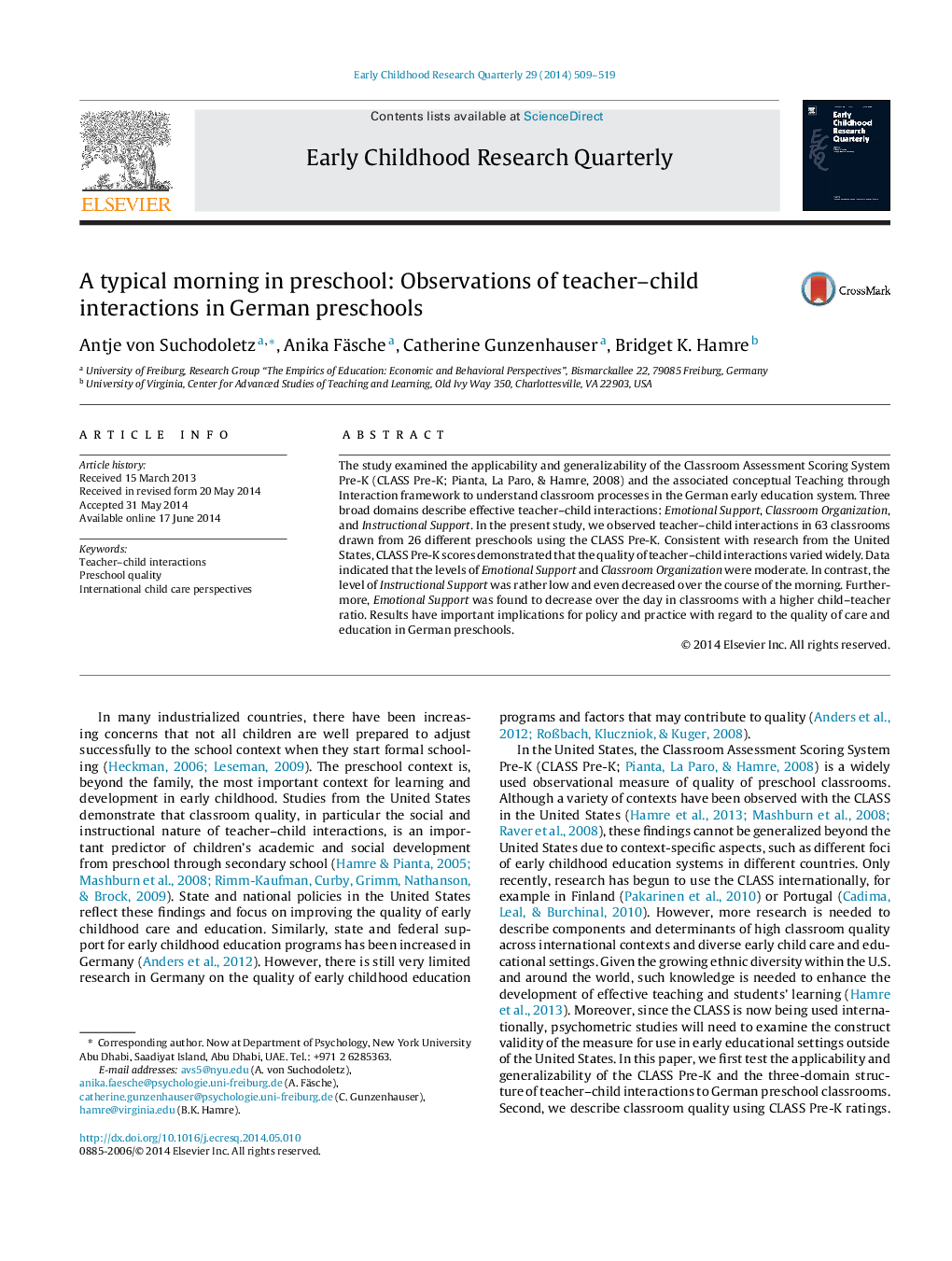| Article ID | Journal | Published Year | Pages | File Type |
|---|---|---|---|---|
| 353800 | Early Childhood Research Quarterly | 2014 | 11 Pages |
•The Classroom Assessment Scoring System Pre-K was examined in German preschools.•Findings provide evidence for acceptable psychometric qualities of the CLASS Pre-K.•Results support a three-domain structure of teacher–child interactions.•Quality of teacher–child interactions changes over the morning.
The study examined the applicability and generalizability of the Classroom Assessment Scoring System Pre-K (CLASS Pre-K; Pianta, La Paro, & Hamre, 2008) and the associated conceptual Teaching through Interaction framework to understand classroom processes in the German early education system. Three broad domains describe effective teacher–child interactions: Emotional Support, Classroom Organization, and Instructional Support. In the present study, we observed teacher–child interactions in 63 classrooms drawn from 26 different preschools using the CLASS Pre-K. Consistent with research from the United States, CLASS Pre-K scores demonstrated that the quality of teacher–child interactions varied widely. Data indicated that the levels of Emotional Support and Classroom Organization were moderate. In contrast, the level of Instructional Support was rather low and even decreased over the course of the morning. Furthermore, Emotional Support was found to decrease over the day in classrooms with a higher child–teacher ratio. Results have important implications for policy and practice with regard to the quality of care and education in German preschools.
